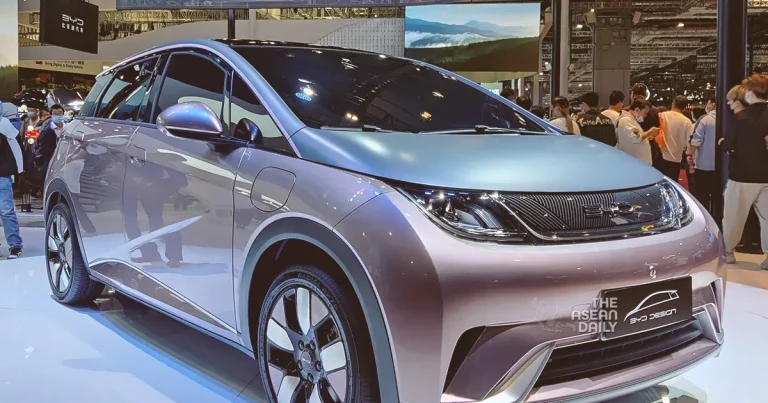12-6-2024 (BRUSSELS) The European Union is set to impose additional tariffs of up to 38.1% on electric vehicles (EVs) imported from China starting next month. This move intensifies a global trade dispute and raises the cost of selling cars in Europe for manufacturers including China’s BYD Co., Geely Automotive Holdings Ltd., SAIC Motor Corp Ltd., and Tesla Inc.
The European Commission notified the affected carmakers following an investigation into subsidies initiated last year. Chinese EV producers have been expanding aggressively into the European market, driven by a domestic price war and years of technological advancements.
Specific tariff rates have been outlined: BYD will face a 17.4% duty, Geely 20%, and SAIC 38.1%, the Commission announced on Wednesday.
China has hinted at retaliatory measures, potentially targeting sectors such as agriculture, aviation, and vehicles with large engines. Beijing has already launched a probe into certain European liquor imports, with a decision expected soon.
Chinese electric vehicle exports to Europe have surged, a stark contrast to their negligible presence before the pandemic. This impending EU decision has already impacted stocks in Hong Kong, with Geely Automobile Holdings and XPeng Inc. seeing declines of around 8% this week, and sector leader BYD Co. down about 3%.
While the investigation focused on Chinese automakers, the increased tariffs—from the current 10%—will also affect Western manufacturers. Tesla, which exports the Model 3 from Shanghai to Europe, alongside BMW AG and Renault SA, will be impacted. Currently, the import duty on passenger cars from Europe to China is 15%.
This tariff escalation occurs as the EU balances protecting its car industry, which provides millions of well-paid jobs, against its ambitious green agenda aimed at reducing CO2 emissions from transportation. The EU’s plan to phase out combustion-engine car sales by 2035 has faced setbacks, notably with Germany removing buyer incentives.
German Chancellor Olaf Scholz has cautioned against restricting automotive trade with China, emphasising that open markets are mutually beneficial. German automakers, including Volkswagen and BMW, sold 4.6 million cars in China in 2022 and would be severely affected by a trade conflict.
Western carmakers have largely opposed the tariffs. Mercedes-Benz Group AG CEO Ola Källenius has been a vocal advocate for open markets. Mercedes-Benz, which relies on China for 36% of its total deliveries, would be particularly vulnerable to retaliatory actions as it imports all its high-end S-Class and Maybach limousines into China. China is also the largest market for both VW and BMW.
The EU’s action is part of a broader series of trade investigations against Beijing, focusing on anti-dumping and unfair subsidies, particularly in the clean-tech sector. This follows the US’s recent imposition of a 100% duty on Chinese EV imports, a largely symbolic measure given the minimal current imports.
Final tariff levels are expected to be confirmed by November. The EU’s decision comes amid a declining outlook for EV sales. BloombergNEF recently reduced its battery-electric vehicle sales forecast by 6.7 million units through 2026, while still projecting China’s dominance in EVs, batteries, and global supply chains for raw materials and components.
In response, China has urged the EU to reconsider the penalties and has indicated potential tariffs up to 25% on imported cars with large engines, impacting brands like Porsche, Mercedes, and BMW. Recently, Commerce Minister Wang Wentao and other officials have visited Europe to advocate against the tariffs, including sending a letter to EU trade chief Valdis Dombrovskis warning of possible actions against the aviation and agriculture sectors. The EU maintains that its procedures adhere to WTO rules.
For their investigation, EU officials focused on China’s leading carmakers BYD, Geely, and SAIC, reflecting the subsidies received by the sector. These firms face specific levies, which could increase depending on their level of cooperation. Tariffs for most other exporters will be calculated as a weighted average, meaning companies like Tesla and European manufacturers importing Chinese-made vehicles, such as Renault with the Dacia Spring, may face lower duties.




